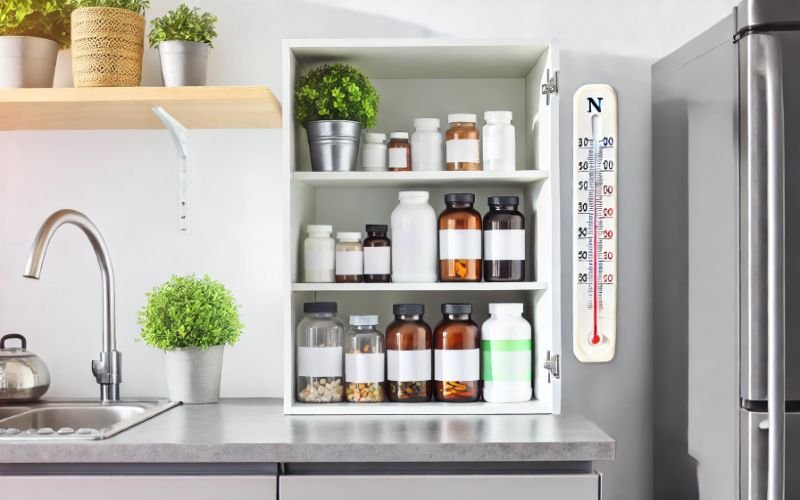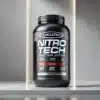Vitamins are an integral part of many health regimens, promising everything from improved immunity to enhanced energy levels. However, the way we store these supplements can significantly impact their efficacy. Improper storage conditions can degrade the potency of vitamins, rendering them less effective or even useless.
This article delves into the best practices for storing vitamin supplements to ensure they remain potent and beneficial for your health.
Understanding the Shelf Life of Vitamins
Every bottle of vitamins comes with an expiration date, but what does that really mean? The shelf life of vitamins indicates the time frame within which the manufacturer guarantees the product’s full potency and safety.
Understanding this is crucial because certain vitamins degrade faster than others. For instance, water-soluble vitamins like C and B-complex are more prone to breakdown than fat-soluble ones like D and E.
The Role of Temperature in Vitamin Preservation
Temperature is one of the most critical factors in preserving the potency of vitamin supplements. Exposure to excessive heat not only accelerates the breakdown of nutrients but can also lead to irreversible chemical changes in the vitamins, particularly those that are water-soluble, like Vitamin C and B-complex. These vitamins are more fragile compared to fat-soluble ones and can degrade quickly when exposed to temperatures above their ideal range.
It’s crucial to understand that even moderate heat can gradually erode the quality of these supplements. Avoid areas prone to temperature spikes, such as the kitchen near stoves or window sills that receive direct sunlight, and bathrooms where steam from showers can create a warm, humid environment.
A steady, cool environment—like a pantry or a bedroom drawer away from any heat source—is your best bet. Some health enthusiasts go a step further by using dedicated mini-refrigerators for storing particularly sensitive supplements.
Shielding Supplements from Light Exposure
Light, especially ultraviolet (UV) light, is an often-overlooked enemy of vitamin stability. UV light can trigger a series of chemical reactions that degrade the active ingredients in supplements, making them less effective or even inactive. The photodegradation process not only impacts the potency but can also alter the physical properties of the supplements, leading to discoloration or changes in texture.
Manufacturers mitigate this risk by packaging supplements in dark-colored bottles, such as amber or green glass, which serve as barriers against light exposure. However, this doesn’t mean the supplements are immune to light. Even with protective packaging, prolonged exposure to direct sunlight or bright artificial light can compromise the integrity of the vitamins.
PRO TIP
To enhance protection, always store your supplements in a dark place. A closed cupboard or drawer works best. For those who prefer keeping supplements on a countertop for easy access, consider investing in opaque storage containers. These simple precautions can significantly extend the shelf life and efficacy of your vitamins, ensuring they deliver the health benefits you expect.
Managing Humidity Levels for Optimal Potency
Humidity presents a unique challenge in maintaining the quality of vitamin supplements.
- Moisture in the air can be particularly detrimental, especially to water-soluble vitamins, which readily absorb moisture.
- This can lead to the tablets disintegrating or capsules clumping together, which not only affects their usability but can also compromise their potency.
- Additionally, excessive humidity creates an ideal environment for microbial growth, particularly in organic or natural supplements that lack synthetic preservatives.
To manage humidity, always store your supplements in a dry environment. Avoid areas like the bathroom or kitchen, where steam and cooking vapors can increase moisture levels. Instead, opt for a cool, dry place like a bedroom or a dedicated pantry.
Using silica gel packets is another effective strategy. These packets absorb moisture and help maintain a dry environment within the supplement container. When using silica gel, ensure it remains inside the container and replace it periodically to maintain its effectiveness.
For those living in particularly humid climates, investing in a dehumidifier for your storage space can provide an extra layer of protection, ensuring your supplements stay dry and potent for as long as possible.
The Dos and Don’ts of Storing Supplements
There are clear rules when it comes to storing supplements. Do keep them in their original containers unless specified otherwise. These containers are designed to protect against environmental factors.
Don’t transfer them to pill organizers for long-term storage, as these don’t offer the same level of protection against light and air. Also, do check the cap after every use to ensure it’s tightly sealed.
Special Considerations for Liquid and Chewable Vitamins
- Liquid and chewable vitamins require special attention. Liquid supplements should always be refrigerated after opening unless otherwise stated, as they are more susceptible to spoilage.
- Chewables, due to their higher sugar content, can attract moisture and should be kept in airtight containers. Both forms often have shorter shelf lives compared to their pill counterparts.
The Impact of Packaging on Supplement Longevity
Packaging is more than just aesthetic—it’s a protective shield. The materials used, whether glass or high-quality plastic, are selected to safeguard the contents against environmental stressors.
Vacuum-sealed and nitrogen-flushed containers are particularly effective in preventing oxidation, a common cause of nutrient degradation.
Conclusion
Storing vitamin supplements correctly is not just about prolonging their shelf life; it’s about maintaining their health benefits. By understanding the factors that affect vitamin stability—like temperature, light, and humidity—you can ensure your supplements remain effective until their expiration date. Taking a few simple precautions can make all the difference in getting the most out of your health regimen.










Add comment
You must be logged in to post a comment.